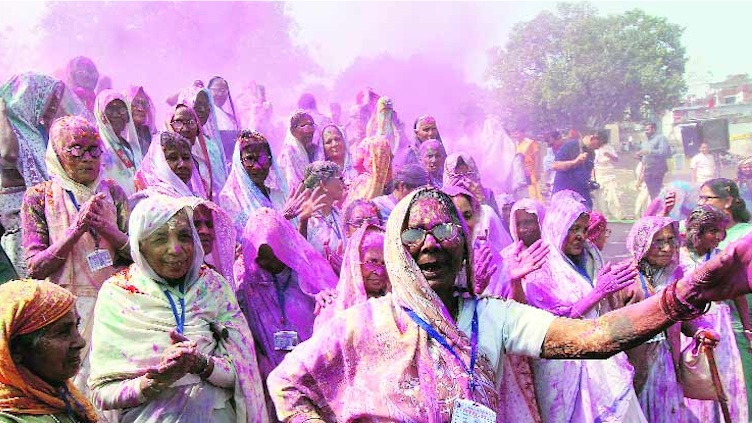Indian Widows Break Tradition and Celebrate Holi
By Showkat Shafi | Mar 05, 2015

Vrindavan, India – Breaking the centuries-old custom of widows not celebrating festivals, Tukni Devi, a 90-year-old, took part in Holi celebrations for the first time in 66 years. Widowed at the age of 24, Devi was shunned by her family and lived as a recluse in an ashram in the holy Indian city of Varanasi.
“Widows in our society are treated worse than animals. I was abandoned by my family to starve and fend for myself. The society thinks we are not worthy of living with them as we lost our husband. I have never celebrated any festival after his death,” she said.
Holi, the festival of colours, is one of the biggest Hindu holidays celebrated across India. However, orthodox traditions forbid widows from taking part in the celebrations, which involves playing with coloured powder. In an effort to draw these widows into mainstream society and lower the social stigma surrounding them, the NGO Sulabh International organised three days of Holi festivities for widows living in the northern Indian cities of Vrindavan and Varanasi. The two holy cities are located in the state of Uttar Pradesh and are often referred to as the cities of widows. Women who are shunned by society after the deaths of their husbands are often abandoned in these cities or go there to voluntarily seek refuge in the different ashrams for widows.















